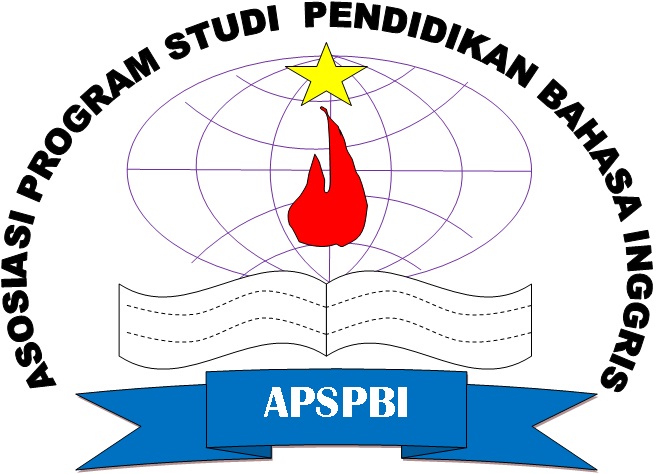Musical colossal drama project-based learning to boost students’ engagement in English language learning
DOI:
https://doi.org/10.28918/erudita.v2i1.5284Keywords:
21st Century skills, Learning English, Musical colossal drama, Project-based learningAbstract
Various factors influence students to be active in learning English. One of them is role-playing and drama in learning songs. The present study aims to showcase EFL students’ emotions in learning English as a foreign language by adopting musical colossal drama project-based learning Nested in a qualitative case study, the eleventh-grade students of a senior secondary school in Purbalingga, Central Java, Indonesia were recruited to participate. Data were garnered through semi-structured interviews and classroom observation. The data were analyzed by employing data reduction, data display, and conclusion verification. Findings of the study demonstrate that the senior high school EFL students showed positive emotions when they engaged in learning English, particularly adopting songs, in the frame of musical colossal drama project-based learning. Another finding reveals that musical colossal drama project-based learning boosted the EFL students’ 21st century skills, i.e., critical thinking, creative thinking, communicating, and collaborating. This study promotes some empirical evidence for how musical colossal drama is organized to foster students’ involvement in a project-based English language learning.
References
Aulia, V. (2022). Barriers in EFL online learning experienced by learners during the COVID-19 outbreak. English Teaching Journal: A journal of English Literature, Linguistics, and Education, 10(1), 30-38. http://doi.org/10.25273/etj.v10i1.12319
Bell, S. (2010). Project-based learning for the 21st century: Skills for the future. The Clearing House: A Journal of Educational Strategies, 83(2), 39-43. https://doi.org/10.1080/00098650903505415
Bender, W. N. (2012). Project-based learning: Differentiating instruction for the 21st century. Corwin Press.
Burakgazi, S. G., Karsantik, Y., Aktan, T., Ayaz, M. A., Buge, B. C., Karatas, Y., Odun, S., Sanli, S., Tarim, B., & Yavasca, O. (2019). Equipped or not? Investigating pre-service teachers’ 21st century skills. Asia Pacific Journal of Education, 39(4), 451-468. https://doi.org/10.1080/02188791.2019.1671803
Darling-Hammond, L., Fllok, L., Cook-Harvey, C., Barron, B., & Osher, D. (2020). Implications for educational practice of the science of learning and development. Applied Developmental Science, 24(2), 97-140. https://doi.org/10.1080/10888691.2018.1537791
Fandino, Y. J. (2013). 21st Century skills and the English foreign language classroom: A call for more awareness in Colombia. Gist Education and Learning Research Journal, 7, 190–208. https://latinjournal.org/index.php/gist/article/view/622
Karyawati, A., & Ashadi, A. (2018). Innovation in the classroom: Engaging English as a foreign learning using project-based learning. Ling Tera, 5(1), 61-67 https://doi.org/10.21831/lt.v5i1.17067
Keyton, J. (2011). Communication and organizational culture: A key to understanding work experiences (2nd ed.). SAGE Publishing.
Lapo, N. (2016). SIOP lesson plan template #2: Soundtrack to my life. Unpublished Academic assignment for CIL505, ESL Methods. National Louis University.
Lems, K., Miller, L. D., & Soro, T. M. (2017). Building literacy with English language learners: Insights from linguistics (2nd ed.). Guilford Press.
Luan, L., Hong, J., Cao, M., Dong, Y., & Hou, X. (2020). Exploring the role of online EFL learners’ perceived social support in their learning engagement: A structural equation model. Interactive Learning Environment, 1-18. https://doi.org/10.1080/10494820.2020.1855211
Maros, M., Korenkova, M., Fila, M., Levicky, M., & Schoberova, M. (2021). Project-based learning and its effectiveness: Evidence from Slovakia. Interactive Learning Environment, 1-21. https://doi.org/10.1080/10494820.2021.1954036
Martinez, C., & Tinoca, L. (2022). Developing 21st century teaching skills: A case study of teaching and learning through project-based curriculum. Cogent Education, 9(1), 1-21. https://doi.org/10.1080/2331186X.2021.2024936
Menggo, S., Ndiung, S., & Midun, H. (2022). Integrating 21st-century skills in English material development: What do college students really need? Englisia: Journal of Language, Education, and Humanities, 9(2), 165-186. http://dx.doi.org/10.22373/ej.v9i2.10889
Miles, M. B., Huberman, A. M., & Saldana, J. (2014). Qualitative data analysis: A methods sourcebook. Sage.
Ramli, R., Setyawan, F. H., Ridwan, R., de Vega, N., & Ulfaika, R. (2022). The ongoing convergence of blended learning classroom in new normal: Teachers’ and students’ perspectives in higher education. EduLite: Journal of English Education, Literature, and Culture, 7(1), 1-15. http://dx.doi.org/10.30659/e.7.1.1-15
Sotlikova, R., & Sugirin, S. (2016). Teachers’ perceptions on using communicative language teaching in the English class. Ling Tera, 3(2), 203-209. doi:http://dx.doi.org/10.21831/lt.v3i2.11137
Stivers, J. (2010). Project-based learning. ESPY 505.
Tan, J. P., Choo, S. S., Kang, T., & Liem, G. A. D. (2017). Educating for twenty-first century competencies and future-ready learners: Research perspectives from Singapore. Asia Pacific Journal of Education, 37(4), 425-436. https://doi.org/10.1080/02188791.2017.1405475
van Laar, E., Deursen, J. A. M., van Dijk, A. G. M., & Han, J. H. (2020). Determinants of 21st-century skills and 21st-century digital skills for workers: A systematic literature review. SAGE Open, 1-14. https://doi.org/10.1177%2F2158244019900176
Downloads
Published
How to Cite
Issue
Section
License
Copyright (c) 2022 Upik Hastuti

This work is licensed under a Creative Commons Attribution-ShareAlike 4.0 International License.















